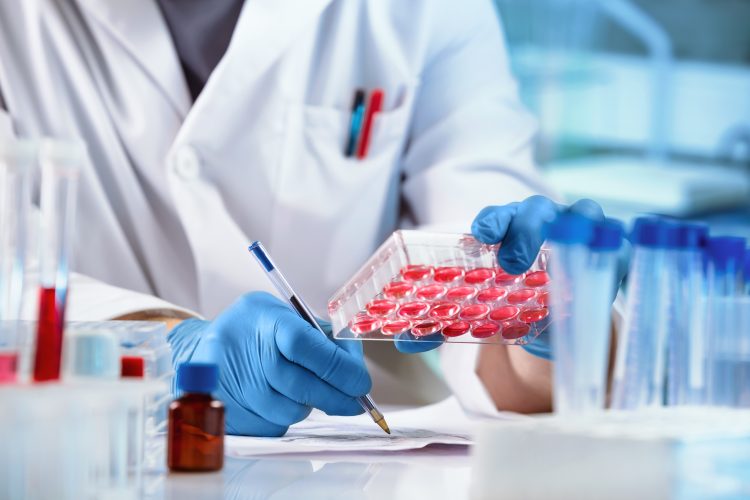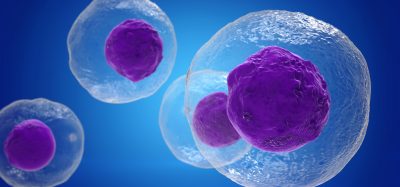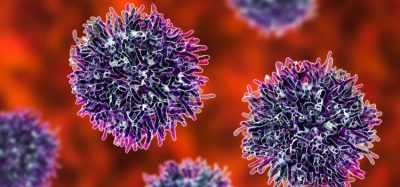Better assays: the key step in moving drugs from lab to clinic
Posted: 16 September 2025 | Drug Target Review | No comments yet
From gene therapy to Long Covid, better assays are helping researchers move promising drug candidates from early studies into clinical trials. Dr Alexandre Lucas explains the technologies, challenges and innovations driving this progress.


In the fast-moving world of drug discovery, assay design and protein analysis often sit at the heart of progress. At Inserm, Dr Alexandre Lucas is leading efforts to make these processes more robust, reliable and ready for translation from early research to clinical trials.
With a PhD in cell signalling and a career rooted in protein biochemistry and biotechnology, Lucas has built a functional biochemistry technology platform that serves as both a research hub and a problem-solving engine for scientists.
In this interview, he shares his insights on assay design challenges, innovative technologies and the evolving role of immunoassays in moving therapies from bench to bedside.
Biomarkers are redefining how precision therapies are discovered, validated and delivered.
This exclusive expert-led report reveals how leading teams are using biomarker science to drive faster insights, cleaner data and more targeted treatments – from discovery to diagnostics.
Inside the report:
- How leading organisations are reshaping strategy with biomarker-led approaches
- Better tools for real-time decision-making – turning complex data into faster insights
- Global standardisation and assay sensitivity – what it takes to scale across networks
Discover how biomarker science is addressing the biggest hurdles in drug discovery, translational research and precision medicine – access your free copy today
Navigating the uniqueness of proteins
When it comes to assay design, Lucas works with a central fact: no two proteins are exactly alike.
The biggest challenge in protein research is that each protein is unique. We therefore need to identify its parameters to extract it properly. This is essential for obtaining robust and quantifiable results.
“The biggest challenge in protein research is that each protein is unique. We therefore need to identify its parameters to extract it properly. This is essential for obtaining robust and quantifiable results.”
To achieve this, Lucas and his team work closely with researchers from a wide range of projects. Each new protein target requires its own tailored extraction strategy and that means in-depth dialogue to ensure the final assay meets the scientific need.
On top of biological complexity, technology adoption poses its own hurdles. “Other challenges in these developments are more related to the tools available or the fear of using new systems such as those from Bio-Techne, which allow for much more reliable results compared to the classic Western blot,” he explains.
Adoption of new systems often relies on showing clear gains in reproducibility and quantification compared with classic methods.
From early research to phase II clinical studies
Inserm’s platform, often working under the We-Met service banner, provides support from the earliest stages of exploratory science through to the demands of clinical research.
“We support our clients from start to finish on their projects. Our expertise in biochemistry enables us to advise and develop new approaches tailored to their needs.”
We support our clients from start to finish on their projects. Our expertise in biochemistry enables us to advise and develop new approaches tailored to their needs.
Central to this capability is a suite of innovative technologies, including Bio-Techne’s Simple Western and ELLA platforms. These systems allow Lucas’s team to produce quantifiable, robust results with fewer samples – a critical advantage when dealing with precious patient-derived material.
The team’s track record includes developments for large-scale preclinical studies, sometimes involving thousands of samples as well as clinical trial assays.
“We have carried out an inclusion test on a high molecular weight protein using Simple Western,” Lucas says, highlighting the platform’s ability to handle technically challenging targets.
Importantly, the group operates under Good Clinical Practice (GCP) guidelines and is ISO 9001 certified, ensuring their work meets the quality standards demanded by regulators.
Staying ahead of regulatory shifts
Drug discovery does not happen in a static environment – regulatory expectations are constantly evolving. For Lucas, staying compliant is an active process.
We strive to stay abreast of new regulations while pursuing innovative and unique approaches.
“We strive to stay abreast of new regulations while pursuing innovative and unique approaches. By drawing on the scientific community and innovative companies such as Bio-Techne, we can continue to be at the forefront of the field.”
This proactive stance allows his team not only to meet current guidelines but also to anticipate changes that might affect assay design, validation and deployment in the clinic.
Case studies: Gene therapy and Long Covid
The platform’s impact is best illustrated by its project successes. One example comes from the gene therapy space, where Lucas’s team implemented quantitative tests to measure protein expression in biopsies. These tests, designed in preclinical trials, were qualified for future clinical use – demonstrating a smooth transition from research to patient-ready tools.
Another project focused on a HERV-W-ENV protein implicated in both multiple sclerosis and Long Covid. Working with collaborators, Lucas’s team developed a test with highly specific extraction and analysis on Simple Western during preclinical trials. After numerous studies and refinements, they validated the test in line with United States Food and Drug Administration (FDA) and European Medicines Agency (EMEA) guidelines. The assay was then performed on the platform for two years in a phase IIb clinical study investigating a treatment for Long Covid.
Such work highlights the platform’s ability to adapt and refine assays until they meet both scientific and regulatory demands – this is no small feat in complex disease areas.
The Simple Western advantage
When asked about the tools that make the biggest difference, Lucas does not hesitate to point to Bio-Techne’s Simple Western.
Simple Western eliminates most of the shortcomings of the classic Western blot. It is robust, reproducible, fast and consumes much less sample.
“Simple Western eliminates most of the shortcomings of the classic Western blot. It is robust, reproducible, fast and consumes much less sample. It allows us to perform solid quantifications and therefore high-quality studies.”
The traditional Western blot separates proteins by size before detecting them with antibodies. Lucas notes that it is labour intensive, prone to variability and can be difficult to quantify. Simple Western automates aspects of this process, allowing reproducible measurements, and Lucas says it has enabled developments to progress into clinical studies that were “previously impossible” with classic methods.
The future of immunoassay technology
Lucas sees future gains coming from improvements in throughput, standardisation and sensitivity.
“The major advances will mainly concern analysis throughput and robustness.”
He identifies four main priorities:
- standardising protein preparation methods
- developing absolute protein quantification tests on biopsies or serum
- creating and standardising new immunoassay tools such as antibodies, antigen-binding (Fab) fragments and nanobodies
- boosting throughput and sensitivity.
These developments, he notes, will be critical to accelerating early-stage drug discovery and ensuring that promising therapies reach clinical evaluation more efficiently.
Making laboratory discoveries clinically ready
Lucas emphasises that technology must address real research challenges. By collaborating closely with scientists, using advanced tools and adhering to regulatory standards, his platform makes functional biochemistry both innovative and dependable.
From custom protein extraction protocols to phase IIb clinical assays, his team demonstrates that carefully applied science and technology can streamline the path from discovery to clinical evaluation.
“It is thanks to this system in particular that we can now envisage and carry out developments up to clinical studies, which was previously impossible with a classic method.”
As immunoassay technology advances, Lucas aims to ensure his platform remains at the forefront, supporting research from early-stage studies through to clinical application.
Meet the expert


He specialises in automated protein quantification (Simple Western), metabolic flux analysis (Seahorse), and high-throughput ELISA/HTRF techniques. His expertise also extends to platform management, project supervision, scientific communication, teaching and consulting.
His scientific background during his PhD encompassed cardiac physiology, protein signalling, and ageing-related metabolic dysfunctions. He has actively contributed to translational and clinical research projects in collaboration with national and international teams. His publication record reflects a strong engagement in both fundamental and applied biomedical research, including recent work on COVID-19 and ageing biomarkers.
Related topics
Analysis, Analytical Techniques, Assays, Biomarkers, Covid-19, Disease Research, Drug Discovery Processes, Gene Therapy, Immunoassays, Protein, Protein Expression
Related conditions
Long COVID, Multiple Sclerosis (MS)
Related organisations
Inserm
Related people
Dr Alexandre Lucas (Research Engineer at Inserm)








